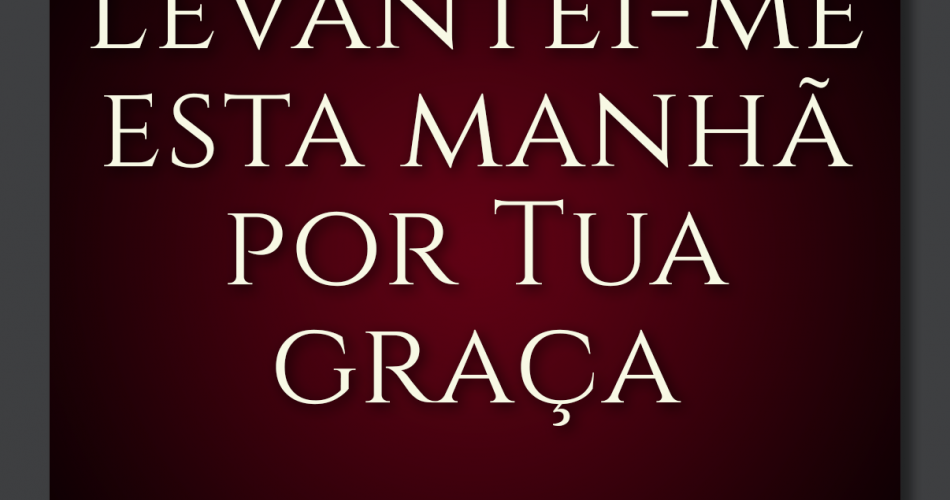Levantei-me esta manhã por Tua graça, ó meu Deus, e parti de minha casa com toda a confiança em Ti e entregando-me a Teus cuidados. Faze descer sobre mim, pois, do céu da Tua misericórdia, uma bênção de Tuas mãos, e deixa-me voltar para casa em segurança, assim como me permitiste sair, sob Tua proteção, com meus pensamentos dirigidos constantemente a Ti. Não há outro Deus senão Tu – Uno, Incomparável, Onisciente, a Absoluta Sabedoria.
Bahá’u’lláh
طُوبَى لِمَحَلٍّ وَلِبَيْتٍ وَلِمَقَامٍ وَلِمَدِينَةٍ وَلِقَلْبٍ وَلِجَبَلٍ وَلِكَهْفٍ وَلِغَارٍ وَلِأَوْدِيَةٍ وَلِبَرٍّ وَلِبَحْرٍ وَلِجَزِيرَةٍ وَلِدَسْكِرَةٍ اِرْتَفَعَ فِيهَا ذِكْرُ اللهِ وَثَنَائُهُ
حضرت بهاءالله
“Levantei-me esta manhã por Tua graça, ó meu Deus” é uma oração recitada pelos Bahá’ís ao saírem de suas casa pelas manhãs. Ela é parte de uma longa Epístola de Baháʼuʼlláh para Mírzá ʻAlí-Muḥammad Varqá, o eminente poeta e mártir Baháʼí.
Since this publication was first posted, several of our viewers have noticed that the word sáliman has been translated as “under Thy protection” and that mustaqíman has been rendered as “with my thoughts fixed steadfastly upon Thee.” Why does it take so many words in English to unpack each of these single Arabic terms?
Let’s start with sáliman, which is derived from the word sálim. In this context, sálim means “safe.” When you add the accusative -an suffix, it becomes an adverb: “safely.” It makes contextual sense for Shoghi Effendi to have translated this as “under Thy protection.”
Now on to mustaqíman. This word is derived from mustaqím, which literally means “straight,” but it does come from a related word, istiqámat, which means “steadfastness.” That is what it means here, and again, it is in the form of an adverb here because of the -an suffix. Hence, Shoghi Effendi rendered this single word as “with my thoughts fixed steadfastly upon Thee.”
Arabic and Persian sometimes have a way of being concise that simply can’t be replicated in English translation. Take this passage from the beginning of the Kitáb-i-ʻAhd, for example:
Earthly treasures We have not bequeathed, nor have We added such cares as they entail.
In the original Persian, this is just six words:
ganj naguzáshtím va bar ranj nayafzúdím
Notice how the translation is nearly three times as long as the original.
Maiores informações
